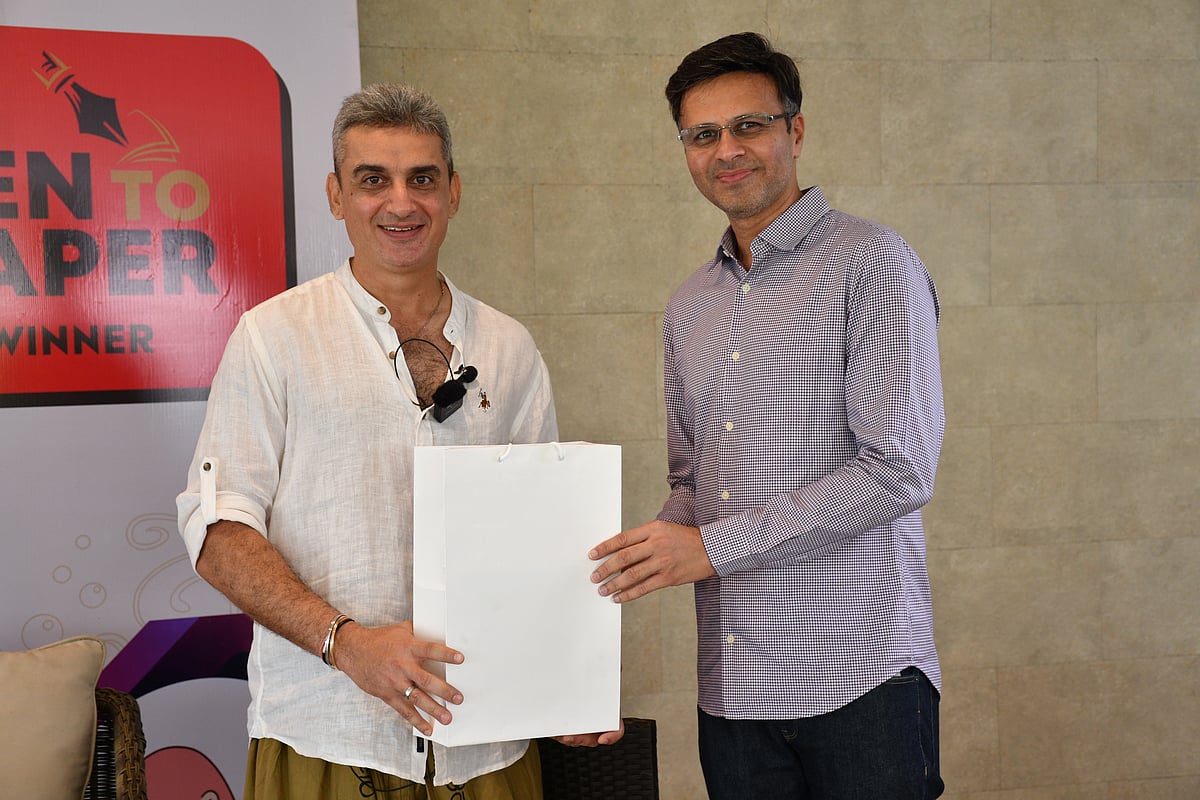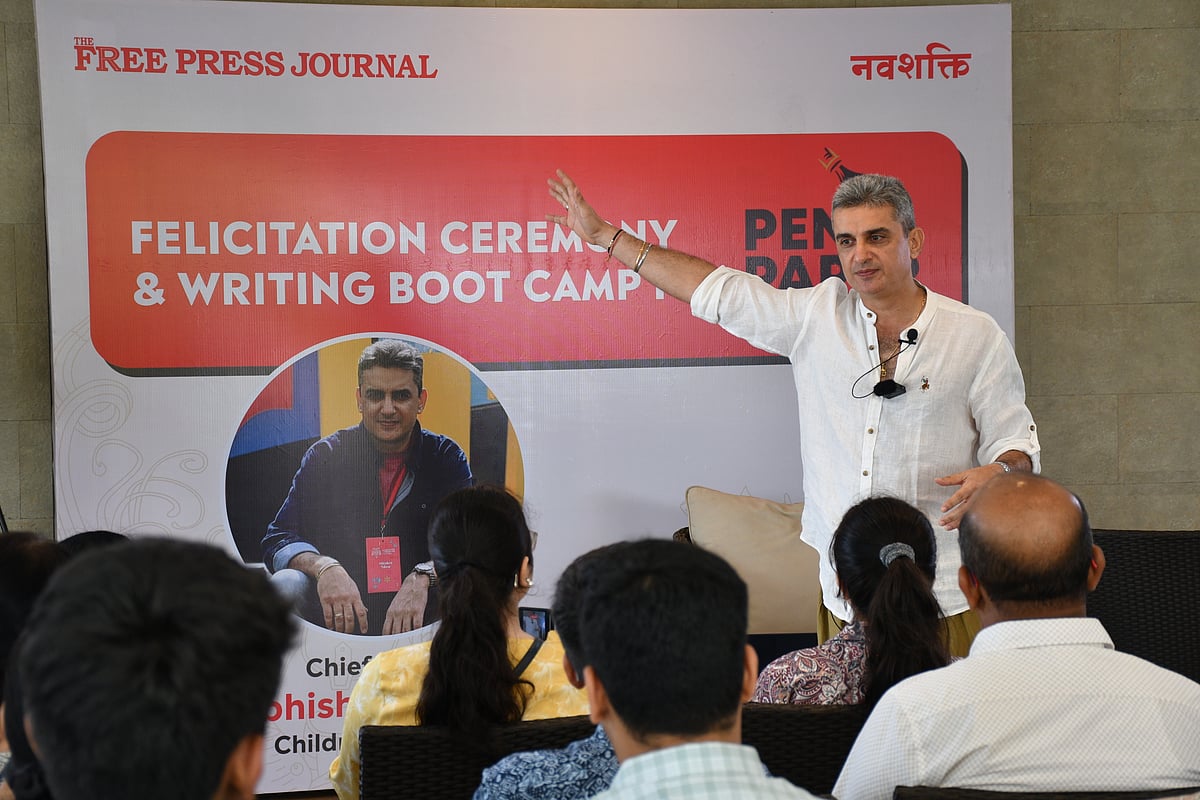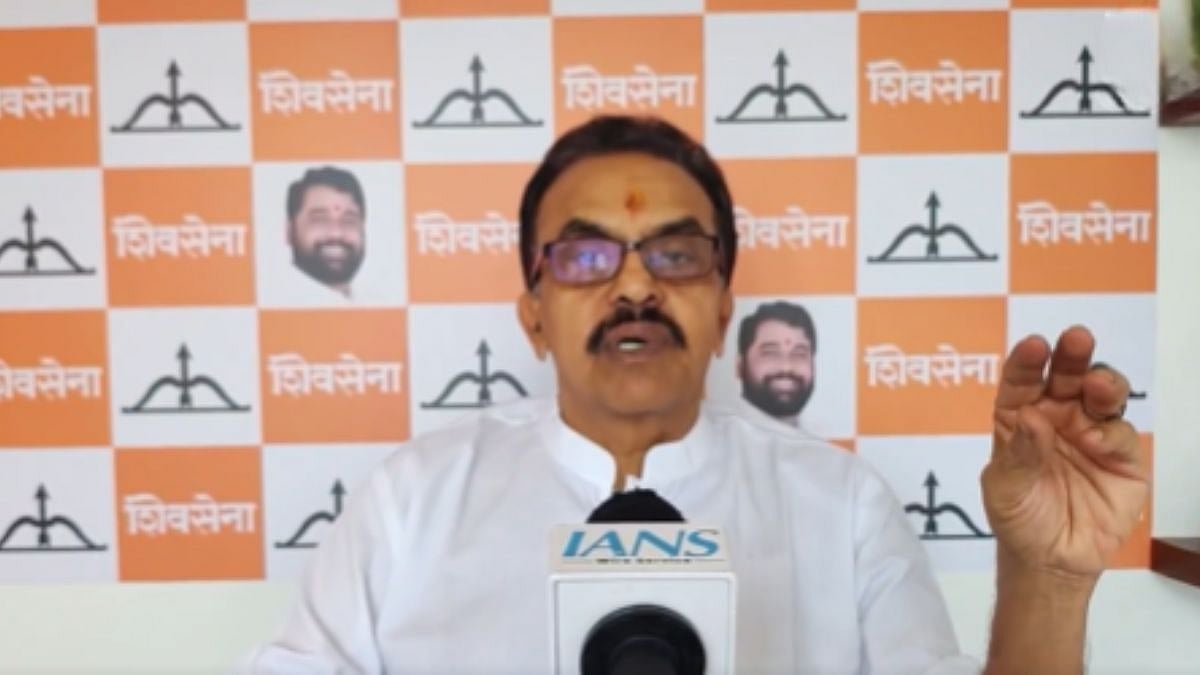Abhishek Talwar, creator of Biplob the Bumblebee series, chats with Tanvi Dalvi on why it took him 35 years to discover his love for nature writing, why he dislikes the label "children's books", and how he helps kids tap into their inner storytellers.
FPJ: You have mentioned that you did hotel management and have no training in writing. What drove you to become a storyteller?
Abhishek Talwar: I believe there is a storyteller in all of us. No matter what profession we are in, we are trying to tell stories. When my kids were growing up, while answering their questions — and they had plenty — I found that the easiest way to do it was by making up stories.
When my wife and I, along with our kids, went on road trips, we went to the mountains and the forests and wandered through hinterlands with our kids. My kids were one and two years old, respectively, and children being children, they would continuously ask questions: Why does the windmill go round? Why is the mirror the way it is?
I figured that if I am trying to explain these concepts to them, at least in the way that I understand, it's not something that a 2-year-old or a 5-year-old or even a 7-year-old would comprehend. Because there are technicalities behind them that even I may not know of. The easiest way to do it is to make up a story and weave in the functionality or the reason why something exists within that story, and then it comes out in a manner that they will never forget. That's how the whole aspect of storytelling or story-writing began. I used to make up stories for them, way back in the day, and then my wife said, "Why don't you write these stories down?". So I started writing them and she got them published and the rest, as they say, is history.
FPJ: So it was your children who brought you into this world. That's wonderful.
Abhishek Talwar: Absolutely.
FPJ: Can you think back to when you really started enjoying books and stories as a kid?
Abhishek Talwar: I can't remember any period in time when I haven't been reading. In that sense, we were lucky that our parents surrounded us with books. My father is an avid reader. He's now cut down on his reading with age but otherwise he would always read. Every single moment of his free time, he would be reading. You see what your parents are doing and you pick up that habit. That's how reading came to me.
FPJ: And are there any books that stand out to you in your memory?
Abhishek Talwar: In terms of books that I would remember, back in the day, I loved books by Ruskin Bond, Jim Corbett and Enid Blyton.
FPJ: Did you see yourself becoming a storyteller at that point of time, as a child?
Abhishek Talwar: I didn't see myself becoming anything at any point in time. It just happened. I've changed so many professions. And when I see younger people who are unsure of what they do and are worried about what'll happen with time, I tell them, “So long as you figure out what you don't want to do, you are moving ahead".

FPJ: That's right. Method of elimination.
Abhishek Talwar: At least then you'll know one thing that you don't want to do. At some point you'll figure out what you want to do.
FPJ: Can you talk about what it’s been like for you as a children’s writer?
Abhishek Talwar:I have always found that it is toughest to write for children. One big mistake that we make is believing that if we are writing for children, we need to dumb it down. We don't. It actually has to be a lot smarter when you are writing for children. Because you not only need to ensure that you're holding their attention with every single word, but also bring the message across without being too verbose. A child has a shorter attention span than an adult. So if it's a book that's well-written for kids, trust me, adults would enjoy them.
FPJ: Children are expected to write essays and stories for school, but they are rarely encouraged to pursue writing as a profession. When does a child progress from writing a school essay to writing for passion?
Abhishek Talwar: All of us have had to do things in school that we don't like doing. A lot of us don't like Math, a lot of us don't like Science. And I'm sure it's the same with English. Is there parental pressure or peer pressure or the perceivable lack of opportunities that are stopping students from taking up writing as a profession? Possibly. But I think the bigger roadblock is - Whether I am good enough to get published?
Look at the proliferation of self-publishing organizations in the country. It is so easy to get your work published today. But who's buying that work? There are scores and scores of books that are published that nobody is buying. Does that mean that you don't write? For every successful actor or entrepreneur, there are a hundred thousand who are unsuccessful.
FPJ: How can we help kids find that love for writing?
Abhishek Talwar: If your child has a passion for writing, please encourage them to pursue it. Success or failure is dependent on so many variables. There is no way that any of us can control them. Put in the right effort, and there's no reason why success will not eventually follow. I use the word success because I think the perceived lack of it could be stopping parents from getting their children to pursue creative writing or writing of any sorts.
There’s a saying that goes, "Lekhak banega tog bhuka marega". That might happen.There are a lot of engineers that aren't doing engineering despite being trained in it. What does that tell you about an engineer?

FPJ - Children's books are often seen as books that are only written for children and are generally marketed that way. Would you agree?
Abhishek Talwar: I'm not so sure if books are marketed to children. There are pretty well-established norms on marketing to kids. We don't market directly to children at Biplob World. We market our books to parents, prospective parents and educators. Because we are trying to tell them that these are great books for your child to be reading.
I continue to write for various age groups. So we've got the Biplob the Bumblebee series, which are for 6-8 year olds. There are the Biplob early learner series which are for 2-5 year olds. And there are the Colonel Zoro books which are for 2-5 year olds, and others which are for 9-12 year olds. Beyond that, there are novels I have written for adults.
FPJ: How can we make adults see the value and depth in them?
Abhishek Talwar: I haven't come across too many children's books that treat entertaining the child as the primary motive, and where everything else comes as a byproduct. The minute you have a book that's designed in that fashion, you'll find that it entertains a reader across ages. I remember reading Jim Corbett’s books when I was 13 and enjoying them. I still read them and I still enjoy them. Because he is writing for himself. He is writing to narrate what happened to him. Ruskin Bond is writing as Rusty, as what he did as a 9 year old boy, and what he did as a 14 year old boy, and then as an adult. No matter what age you are at, you will enjoy reading it.
Does that mean that children's books content is not marketed to adults, or is it marketed only to children? I honestly don't have a complete answer to that. But is there an opportunity there? Oh, absolutely. Is there merit in a publishing firm saying that they will market a book made for children to an adult? I am not so sure. Audiences are fickle, market segmentations are not well-defined. You don't want to run the risk of being perceived as somebody who has created a product for one segment, and is towards another. I don't think any product or brand or publication wants to fall into that trap. That notwithstanding, there is no dearth of content which would appeal across age groups.
I have had a lot of adults come up to me and tell me that they really enjoy reading my books. And if I were to draw a parallel as to why somebody has enjoyed one story I have written and not another, it's to do with how entertaining that story is. Personally, I really loved the learning that came out of writing my books. Or somewhere in between, perhaps, I realized that it's teaching me about sustainable development, or that I'm learning about a fort which I didn't know about. It's about ticking all the boxes for us.
FPJ: The phrase "children's books" can be very limiting. Because children's books are a way of tapping into our inner child. And we all have one. Even in books for "adults", that is who we are looking for.
Abhishek Talwar: That's a great observation. I think we should not call them children's books. We should start calling them books that are "appropriate for children" or for the child in you.
FPJ: You mentioned that there's a dumbing down of children's literature in India, and I agree with it. You find books saying "the grass is green", "the flower is red", and it somehow ends up underestimating a child's ability to imagine and to grasp beyond the obvious. Do you have a take on this and do you see it affecting their reading habits in the future?
Abhishek Talwar: Is there writing that is too simplistic because people believe they're writing for children and it should be that way? Of course that content exists. And the market puts it in its place. There's also content that's ahead of its time. It finds its own place. Is there merit in us creating content that is intelligent? Absolutely. I'm not so sure if the dumbed-down content is going to have so much of an impact on a child's ability to read or comprehend going forward. Because they're just going to move away from it.
Humans are very intelligent. Children are smart. Every generation is smarter than the previous ones. My kids are smarter than me. You are smarter than I am. The kids who come after you are going to be smarter than you are. You can't get away with rubbish with them. You can't get away with things that are factually incorrect. Because there are so many media and means through which information is flowing through that everything is questioned. There is so much instant gratification and constant gratification that is happening, that unless and until you are content and the book ticks off all the boxes in terms of being gripping — or if it's a picture book, if it's visually engaging — you're not going to be able to hold the child's attention.

This automatically ensures that the chaff is separated from the wheat. I don't think consumers are going to allow content or the lack of quality in it therein to determine how far they proceed. They'll find something else which interests them. They're going to drop you like a hot potato.
FPJ: Do you notice any differences in the trends that girls and boys like to read? I'm phrasing it in such a way, because traditionally there have been books for girls, like fairy tales, and books for boys, like superhero books.
Abhishek Talwar: I actually just discovered that I used to like books that girls like. I loved reading fairy tales when I was young. And I didn't know that they were written for girls. I don't think of my audience as a girl or a boy or anything else. I think of my audience as a reader. I think the problem lies in how the content is marketed, and not so much in how the content is created. Because I haven't come across a single person who has said, "I'm writing for girls and hence I will write like this". They will say, I'm writing from the perspective of a woman, or I'm writing from the perspective of a man.
But unless and until you are a marketeer, where you are looking to market a certain thought or a certain product or a certain brand, I'm not sure if that's something that really creeps in. A lot of these aspects that you brought out are created by society, where we say a girl should play with a doll and a boy should play with a ball. That's conditioning by society. And literature, in many ways, is going to reflect that. It may question it, but even in questioning it, it may reflect that.
FPJ: Children sometimes might feel constrained by a set formula for storytelling and it might hold back their creativity. You mentioned that you found your voice through Biplob The Bumblebee. How do you help children find their own unique storytelling voice?
Abhishek Talwar: By encouraging them to write. The more they write, the more they discover what they like writing about. The only way you can do that is by completely opening up a whole gamut of subjects that children should be encouraged to write about.
The other day, my daughter told me that she wanted to learn how to write a business letter as part of an exam. And the book she was referring to had a very clear set format in which it had to be written. I told her that that was rubbish. I've written a lot of professional emails and none of them were structured like that. She told me: "My letter has to read exactly like this". I responded, "Listen, it's not a chemical formula". It's not that you'll get methyl alcohol instead of ethyl alcohol if you shift one letter from here to there. It has to make logical sense. And therein lies the problem.

The idea is to get kids to find their voice by writing on every conceivable subject under the sun. We don't know what we like till we get out there and do it. It took me 35 years to figure out that I like writing about nature. So if it's taking you a lot of time to figure out what you like and if you're experimenting in the interim, it's alright. But you will not find your voice and you will not find what you like to write about till you write about everything under the sun. If you're really lucky, you may get to a point where you can write about anything under the sun, but you will write it in your inimitable style, and you'll enjoy doing it.
FPJ: As an author focusing on environmental themes, what impact do you think your stories will have on young readers, both in terms of their understanding of nature and their desire to protect it?
Abhishek Talwar: My philosophy — and this is not a marketing or a corporate spiel — is that I write my stories so that my kids will fall in love with nature. I find that it is the easiest thing to do. Because our natural world is so explicitly beautiful, there's no way you can't fall in love with nature. We are creatures of nature. Everything within us finds resonance in nature. How can you not resonate with anything that's natural? It's the easiest thing. So if you ask me, I've got a very easy task. I need to get children to fall in love with nature. You just need to pick a child up and put her in a park or in a garden or in the woods and look at the sea change that goes through her. How can you not love nature? What we're doing in a more structured approach through our stories is to get children to hopefully fall in love with nature and the beauty that nature has to offer, and get them to see the importance of cherishing and protecting what we have vis a vis our natural environment, while also building a more sustainable world by empowering them with the tools to do so. As long as our stories tick off these goals, I believe we've done our job well. But the caveat is that every single story is couched in a complete out and out entertaining fashion. So the message comes out - Read the books because they're funny and entertaining. Seekh apne aap aa jayegi.






